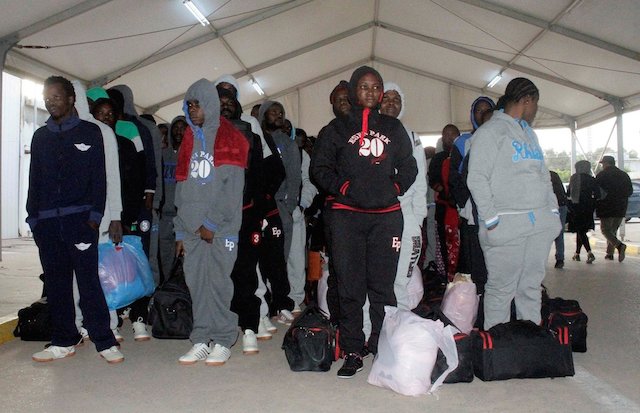
Paternity Fraud Increases In Wake Of Nigeria’s ‘Japa’ Crisis – Report
A newly released report from Smart DNA, Nigeria’s foremost DNA testing facility, has revealed a startling trend: one in four Nigerian men who undergo paternity testing is not the biological father of the child in question. This revelation continues to reverberate across the country, challenging long-held assumptions about family structures and trust.
Covering the period from July 2024 to June 2025, the 2025 Annual DNA Testing Report offers a sobering look into the intersection of science, migration, and evolving social norms. While the rate of paternity exclusion dipped slightly from 27% in 2024 to 25% in 2025, experts warn that the persistently high figures point to a growing, silent crisis.
“These results go beyond genetics, they reflect the emotional, relational, and financial realities facing Nigerian families today,” said Elizabeth Digia, Operations Manager at Smart DNA.
One of the most striking findings is the disproportionately high rate of paternity rejection among firstborn sons.
A staggering 64% of firstborn males tested were found to have no biological link to their presumed fathers, far surpassing the rates seen in younger siblings. Firstborn daughters also showed elevated rejection rates, though less dramatically, suggesting cultural factors such as early relationships, pre-marital pregnancies, or strategic partner choices may be influencing outcomes.
The report also highlights the impact of Nigeria’s ongoing emigration wave, popularly known as the “Japa” movement, on DNA testing trends. Immigration-related tests surged by 13.1%, driven by visa applications, dual-citizenship claims, and family reunification efforts abroad.
“DNA testing has become a gateway to both truth and opportunity,” Digia noted. “For many, it’s a biological passport for their children.”
Men continue to dominate the paternity testing landscape, initiating 88.2% of all tests. Older men, particularly those aged 41 and above, accounted for nearly half of all inquiries, suggesting that financial stability may empower them to confront long-standing doubts. Most children tested were under five years old, and 53.8% were male, underscoring a cultural emphasis on confirming male lineage, often tied to inheritance and family legacy.
Lagos remains the epicenter of DNA testing, accounting for 69% of all samples. However, the balance is shifting, with affluent Island communities like Lekki and Ajah seeing increased activity. Top testing hubs included Lekki (20.3%), Yaba (15.8%), Ajah and Ikorodu (10.5% each), and Surulere and Ikeja (9% each).
Ethnic representation in the data adds another layer of complexity. Yoruba clients made up 53% of cases, followed by Igbo clients at 31.3%. Hausa participation was notably low at 1.2%, possibly due to cultural taboos, religious beliefs, or limited awareness of DNA testing in Northern Nigeria.
Interestingly, the vast majority of tests—83.7%—were conducted privately for “peace of mind,” rather than for legal purposes. Only 1.4% were court-mandated. Most clients tested just one child, indicating a focused suspicion rather than a broad investigation, and reflecting the discreet nature of these inquiries.
Despite the emotional and financial toll, Nigeria still lacks legal protections against paternity fraud. Unlike countries such as South Africa, Nigerian men misled about biological parenthood have little recourse. The report calls for urgent policy reform, integration of DNA testing into public health services, and educational campaigns to normalize open conversations about paternity.
Ultimately, the 2025 Smart DNA Report reveals more than statistics—it exposes a society in quiet turmoil, grappling with trust, identity, and the transformative power of science. “Behind every number is a personal story—of betrayal, clarity, or relief,” Digia concluded. “Our mission is to deliver answers with compassion and confidentiality.
Share your story or advertise with us: Whatsapp: +2348033202396 Email: sentinelnewsng@gmail.com








